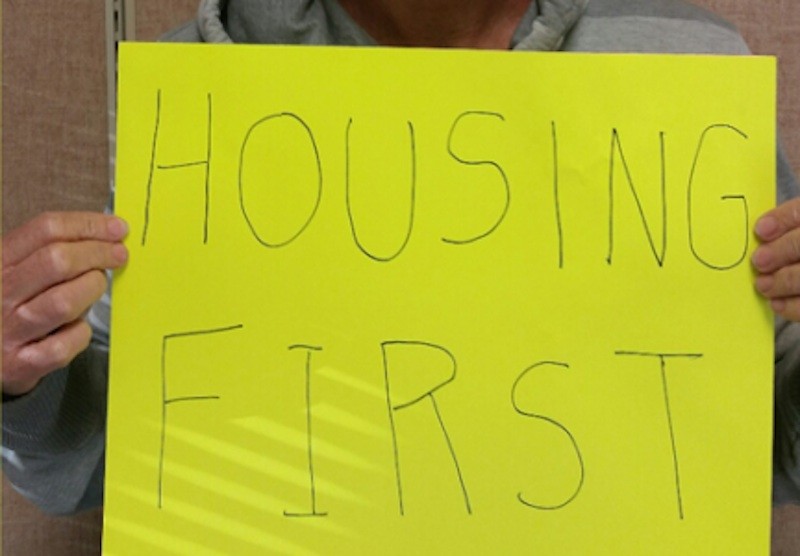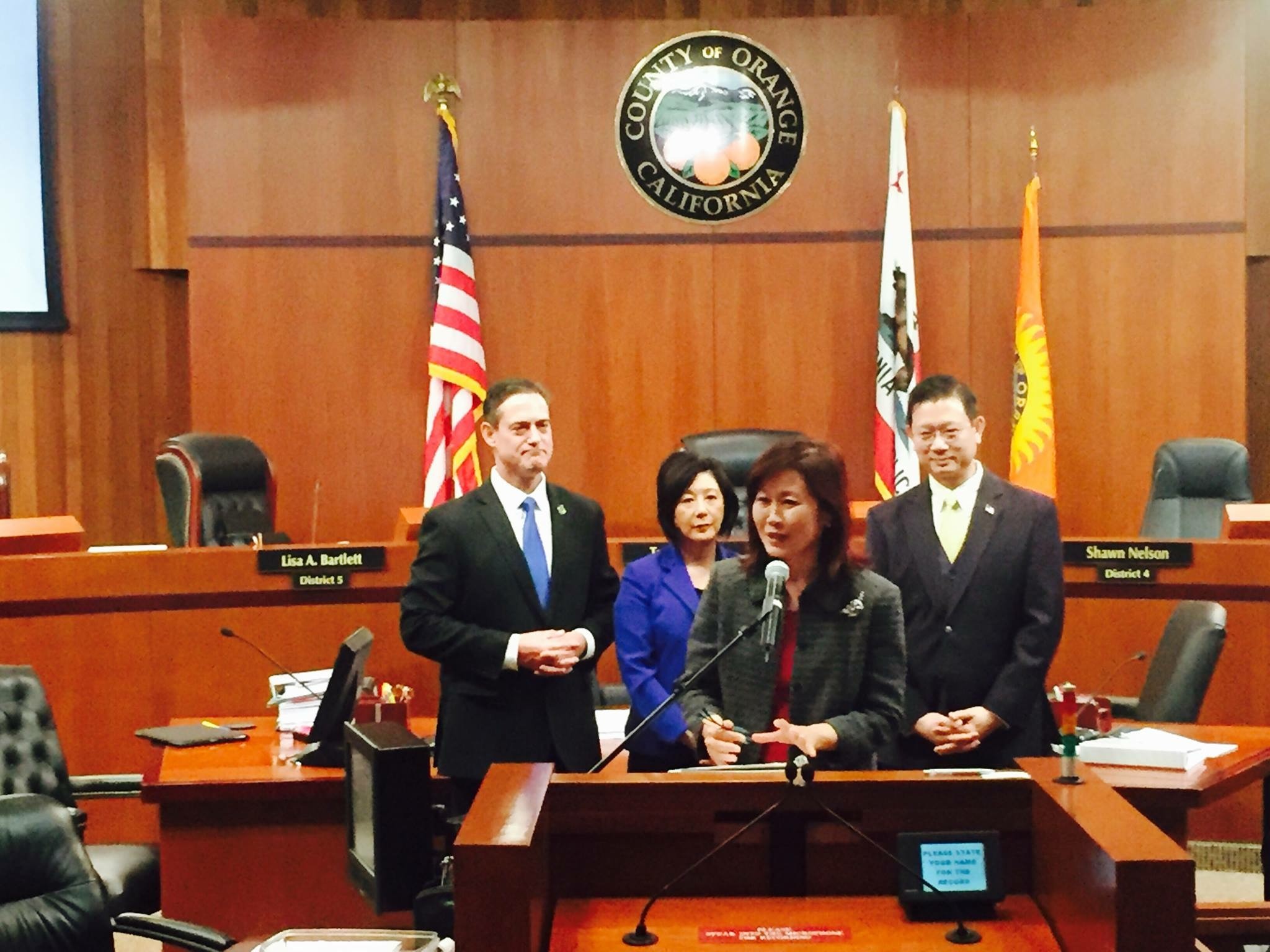 The American Civil Liberties Union of Southern California sent a letter Monday to the Orange County Board of Supervisors alleging violations of the state’s open meeting law and the U.S. Constitution due to the board policy of “severely limiting public comment at meetings.”
The American Civil Liberties Union of Southern California sent a letter Monday to the Orange County Board of Supervisors alleging violations of the state’s open meeting law and the U.S. Constitution due to the board policy of “severely limiting public comment at meetings.”
“County Counsel has received the letter and is reviewing its contents,” says county spokeswoman Carrie Braun.
Perhaps the matter will come up when the board meets as scheduled today in their Santa Ana chambers.
Brendan Hamme, an ACLU SoCal staff attorney, references the accusatory letter in a blog post titled, “Free Speech Stops Here: O.C. Board of Supervisors stifles dissent.”
“Instead of the board acknowledging its role as servants of the people, it treats the community as an impediment to conducting its own business,” Hamme writes. “It’s the duty of supervisors to listen to their community; it’s not an inconvenience to be endured, it’s their job.”
 The letter lays out four ways the board obstructs public input:
The letter lays out four ways the board obstructs public input:
* Time limits. “Last year, the board reduced the amount of time a speaker could comment to three minutes—for the entire meeting,” claims the ACLU, which notes the rule does not apply when board members like what the speaker is saying. “Thus, the manager of a company that offers a ‘VIP wine tour’ was allowed to bust the time limit,” Hamme notes. “Meanwhile, those at the meeting to talk about poverty and homelessness were brusquely cut off at the minute mark.” While the Ralph M. Brown Act, California’s open meeting law, allows a local agency to adopt “reasonable regulations […] limiting the total amount of time allocated for public testimony,” the ACLU SoCal believes the OC board’s restrictions “are hardly reasonable.”
* Addressing a specific supervisor. The board also prohibits people from directly addressing individual supervisors, according to the ACLU, which believes “directly leads to absurd results. It would prevent a person from responding to a remark made by a particular supervisor,” the group notes, while ignoring “the fact that the supervisors are not a cohesive body and subverts the supervisors’ roles as representatives of specific districts.”
* Comment cards. The board requires speakers at meetings to fill out request forms that include the person’s name, but the Brown Act and League of California Cities say, “Public speakers cannot be compelled to give their name or address as a condition of speaking.” Meanwhile, anonymous speech is guaranteed by the Constitution, points out the ACLU, which adds, “As a practical matter, individuals might not come forward to speak if they fear disclosing their identity could lead to retaliation or harassment.”
 * Signs. A board rule that bans signs, posters and banners that “could impair the safety of individuals in the event of an emergency” is not unreasonable—”except that the board and sheriff seem to interpret it as no signs at all,” states the ACLU.
* Signs. A board rule that bans signs, posters and banners that “could impair the safety of individuals in the event of an emergency” is not unreasonable—”except that the board and sheriff seem to interpret it as no signs at all,” states the ACLU.
Hamme points to Eve Garrow, an ACLU homelessness policy analyst and advocate, who took a handwritten sign to a recent meeting that stated, “Housing First.” The 11-by-14 inch sign was made card stock.
“The sign was so small and flimsy; it would not present a danger to anyone,” Garrow said. Nonetheless, she was told she would have to leave it outside the boardroom.
“Not only did banning this harmless sign go against the board’s own rules, the use of non-disruptive signage clearly falls under First Amendment protections,” according to the ACLU. “And, given Board’s approach to public comment, at a large enough meeting, it could be the only way of communicating with the Supervisors.”
The ACLU SoCal is calling on the Board of Supervisors to immediately begin the process of rescinding and replacing these illegal policies and practices, and fundamentally change its approach to the community it purports to serve.”
Otherwise, the county’s attorneys could find themselves facing their ACLU SoCal counterparts in federal court, vows Hamme, who adds, “And our dissent will likely take longer than three minutes.”

OC Weekly Editor-in-Chief Matt Coker has been engaging, enraging and entertaining readers of newspapers, magazines and websites for decades. He spent the first 13 years of his career in journalism at daily newspapers before “graduating” to OC Weekly in 1995 as the alternative newsweekly’s first calendar editor.

